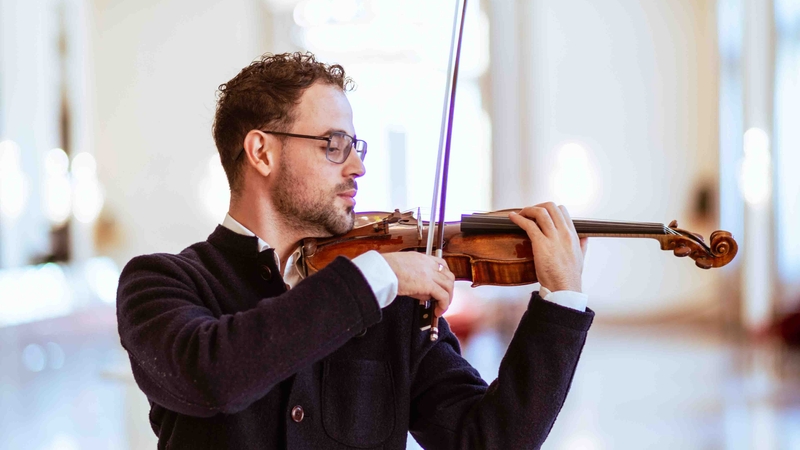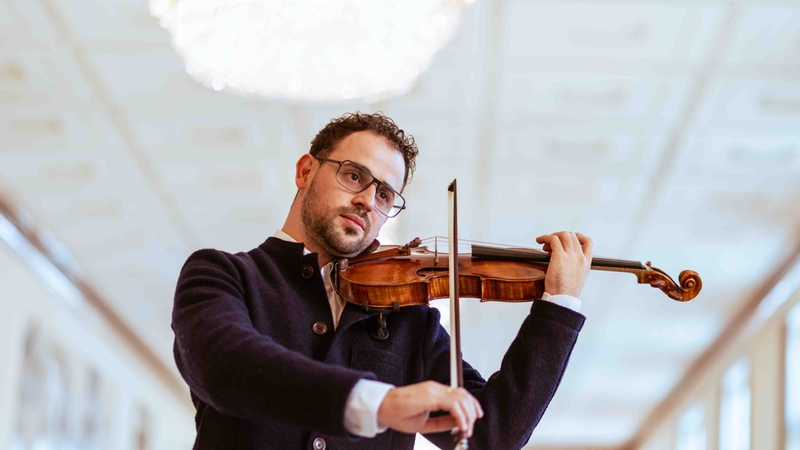Sleepless in Vienna
Interview |

Opera and ballet performances, philharmonic concerts, practicing. Don't you already have enough to do as a concertmaster? Why are you also playing chamber music on Saturday mornings?
Because I love it! We all love it! And it's so important, it brings us musicians so much on so many levels. But basically, chamber music is a form that we practice all the time, even in an orchestra, even in a large ensemble, in the opera house and on the concert stage. Because this close listening to each other, playing together, reacting to each other: that's what we've been practicing all our musical lives. Apart from that, chamber music is simply a passion. And I like to make time for this passion on Saturday mornings too.
This means that you play differently as a soloist than in the orchestra. To what extent do these playing styles differ?
That's a very good question! As a soloist, I have greater freedom in some things, such as tempo. The sound is also different: if I play piano in the orchestra, for example, it's really very quiet. As a soloist you have to articulate differently, there simply has to be more tone, I have to be more audible. I also use a different vibrato, I'm more present - more soloistic. In the case of the concertmaster, I also have to lead a little with the sound, even if I'm part of the group. It's always the duality I mentioned earlier: group and individual. There used to be the idea that playing in an orchestra has something to do with passivity. But that is fundamentally wrong. You have to be just as active as a soloist, but you always have to know that you are part of a group.
But the repertoire has to be developed first. What is it like as a young concertmaster to join the orchestra and have to work on such a large program? When do you still sleep?
Quite simply: not at all. (laughs) For me, this position was so musically valuable, so incredibly important, that nothing could beat it. I really wanted to be part of this orchestra and invested a lot of time accordingly. Gladly invested! There were days in the first year when I was the first to come to the opera and the last to leave. After all, it's not just about the performances you play, you also have to learn the pieces, of course. And not just your own instrumental part, but as a concertmaster I have to know the whole score. Before I took up this position, I thought: maybe it gets too much in between, maybe this constant learning can go over your head. But lo and behold: no, it's always fun and has always been fun! In the meantime, I already know some of the opera repertoire, which makes it easier for me. But that doesn't mean that I'm bored. After all, as a musician you're always on the lookout anyway and always want to find something new.
Where do you have your ears as a concertmaster? In your own group? Or do you have to think about the entire orchestra?
Of course it's about the whole orchestra! You can hear everything - although unfortunately you can't see everything from my position. I've learned a lot in this respect over the last two years: it's not just about your own voice, but about the orchestra as a whole. Everything is important. Everything has to be considered. For example, when the first violins play a phrase together with the second bassoon, you have to connect musically and in terms of timing. You have to know how and where musical themes develop within the orchestra. Who reacts to whom. So you need a great overview - and it's simply better to make music with one!
A question as simple as it is difficult: What makes a good violinist? Or in other words: what do you listen to? What is special about a soloist such as Vilde Frang, who also performed at the Peace Concert in the State Opera?
Nice of you to mention Vilde Frang, a fantastic musician and a good friend of mine! I'm a fan of hers... Perhaps the answer is quite simple: it has to come from the heart. Of course, a good technique, the craft, the dexterity, the intonation, the knowledge, it all has to be there. But the most important thing is the feeling, that certain something extra that makes playing something special. And this extra something comes from your own life. You have to want to say something as a musician. And when a performance speaks to a listener: then you've achieved the most important thing!
In your chamber music program, you play several works by Krzysztof Penderecki alongside Antonín Dvořák. Why this focus?
This was initiated by my colleague Jurek Dybał: He can draw on a large Penderecki repertoire and has also played in several Penderecki premieres. And after I had the opportunity to perform this great composer's violin concerto last year - an incredibly challenging, long work, by the way - I was immediately hooked. A great program!

